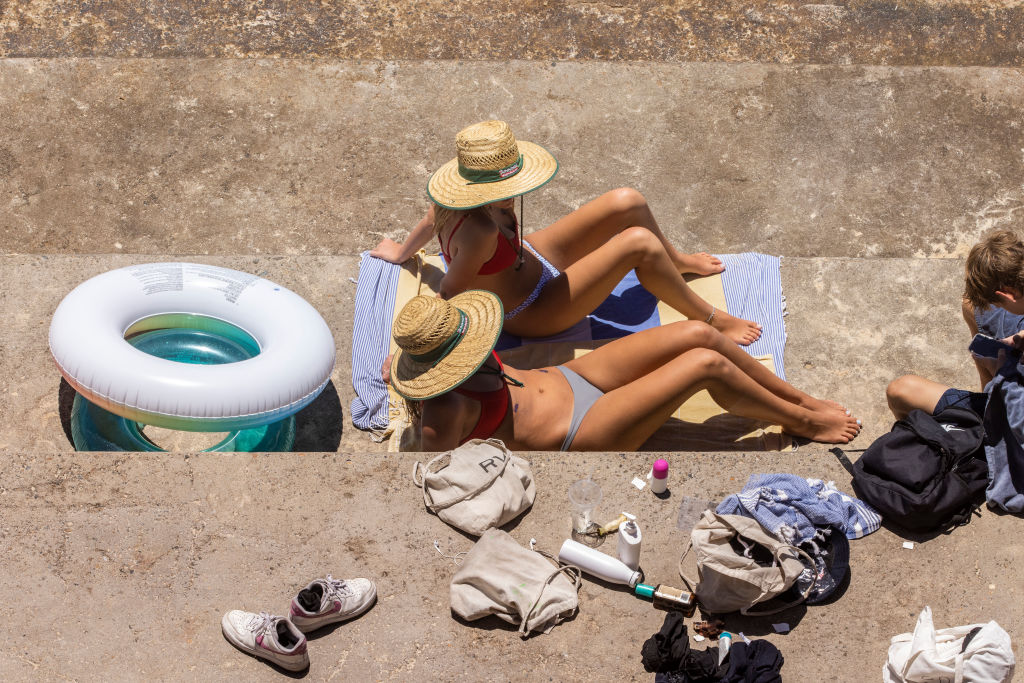As the hot Australia summer rolls on, so too do the summer silly season stories. The latest is a Sydney council imposing bans on G-string bathing costumes at its public swimming pools.
When it comes to swimwear, Australia has had a long tradition of community standards conflicting with personal freedom. In the early years of the 20th century, anything not neck-to-knee got you ejected from Sydney beaches. In the fifties, as bikinis became popular, patrolling beach inspectors actually measured women’s bikini tops and bottoms to ensure they retained the requisite degree of modesty.
Whatever happened to good taste and decorum?
This summer, Blue Mountains City Council, in the eponymous hills rising above the western hinterland of Sydney, has felt moved to resolve ‘confusion’ about dress standards for swimmers using its pools and leisure centres. Referring to a poster displayed on-site illustrating appropriate swimwear, in a convoluted Facebook post the council’s leisure centre management attempted to lay down the law.
‘It’s important to remember that these images are indicative only,’ the post said. ‘In particular, the image of “revealing swimwear/thongs” has raised some eyebrows. This image refers to thongs and G-strings – not bikini tops and bottoms. Thongs and G-string swimwear is not acceptable for males or females when visiting our leisure centres. Bikinis are acceptable and considered recognised swimwear.’
The summer silly season being what it is, the council’s G-string ban has been a hot topic of debate in the Sydney media. There’s been no shortage of comment, not least from outraged feminists raging against any restrictions on what a woman chooses to wear to a public swimming pool. In a television discussion of the ban, presenter Georgia Tunny summed up the reactions of many when she declared, ‘I just don’t care what people are wearing, if they feel confident enough to wear that, then I am happy for them to do it.’
A reality TV personality, Abbie Chatfield, denounced the G-string ban as ‘policing women’s bodies’. A model and ‘influencer’, Jess King, went further, condemning the decision as having huge implications for women’s freedom to be themselves. ‘Such a ban implies that the human body – specifically the bum, (which we all have!!) – is inherently inappropriate or sexualised, reinforcing shame rather than promoting acceptance,’ King shared on – where else? – Instagram.
And, inevitably, the Guardian weighed in, seeing the council’s G-string ban as an attack on women’s rights. But what about the public’s rights?
Public pools and beaches are just that – public. They are not private domains; they are open to one and all. When you swim or sunbathe, you are not the only person there. Especially in the summer months, there are hundreds, even thousands of others there too, sharing the space with you. They’re of all ages, all cultures, all social and religious backgrounds.
When it comes to G-string bikinis that expose a woman’s buttocks and breasts to the world, do the rest of us really have to see it? Bans like that imposed by the Blue Mountains council are not an attack on womanhood, or on personal expression.
Rather, they’re merely an injunction asking swimmers to show a bit of self-awareness and consideration for others. You might think your botoxed and silicon-enhanced bum and boobs look magnificent, and want to flaunt them for all to see in the skimpiest of costumes, but have you thought that other people might prefer not to see them at all?
And it’s not just women. When blokes wear the briefest of swimming briefs that barely cover their ‘boy bits’ – Australians call them, colourfully, ‘budgie-smugglers’ – and exaggerate the wearer’s manhood but are all but non-existent, that’s no less in-your-face to other pool or beach users. It’s all about the wearer, Borat-like, ostentatiously flaunting their endowment and saying ‘up yours’ to all who can see him.
Whatever happened to good taste and decorum? Some critics say dress standards like these pander to the modesty demands of vocal religious minorities. But all the Blue Mountains City Council is seeking to do is ensure that everyone can enjoy using their facilities, and asking patrons to show a little consideration for others in choosing what they wear and how they show themselves in public.
Instead of being condemned by permissive poseurs and feminist fanatics, Blue Mountains City Council should be praised for being prepared to set some minimum standards in the public interest. This is all hot summer air on a G-string.







Comments